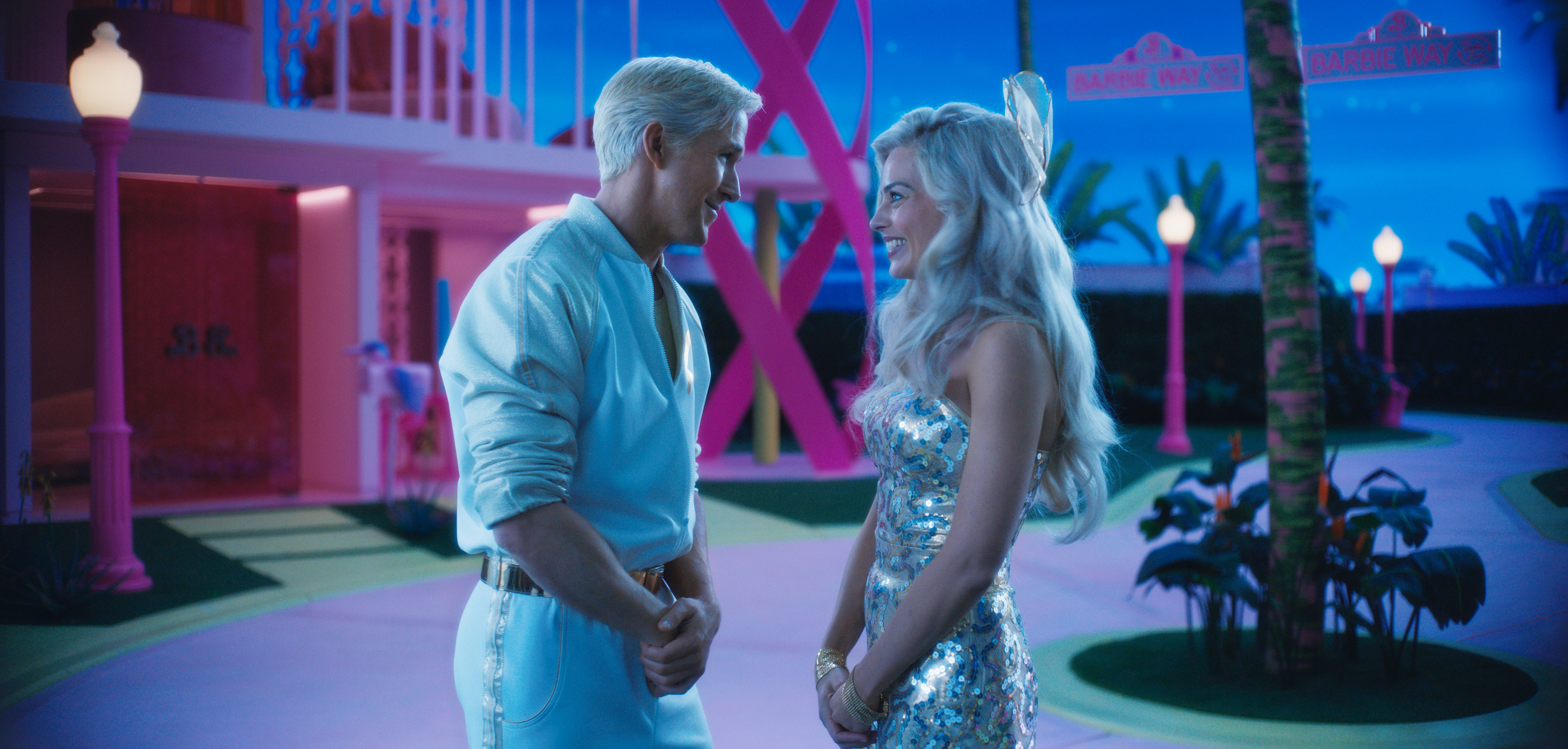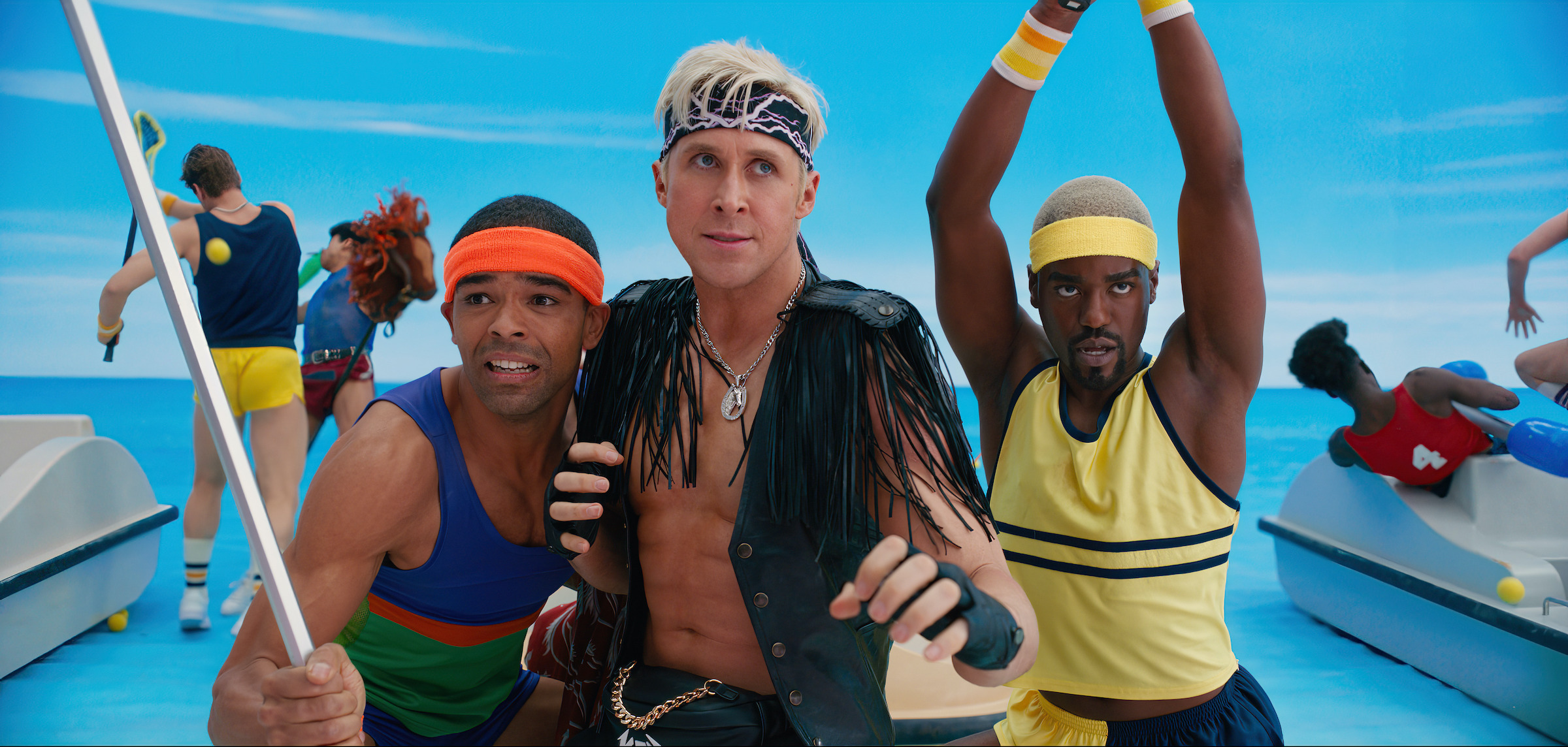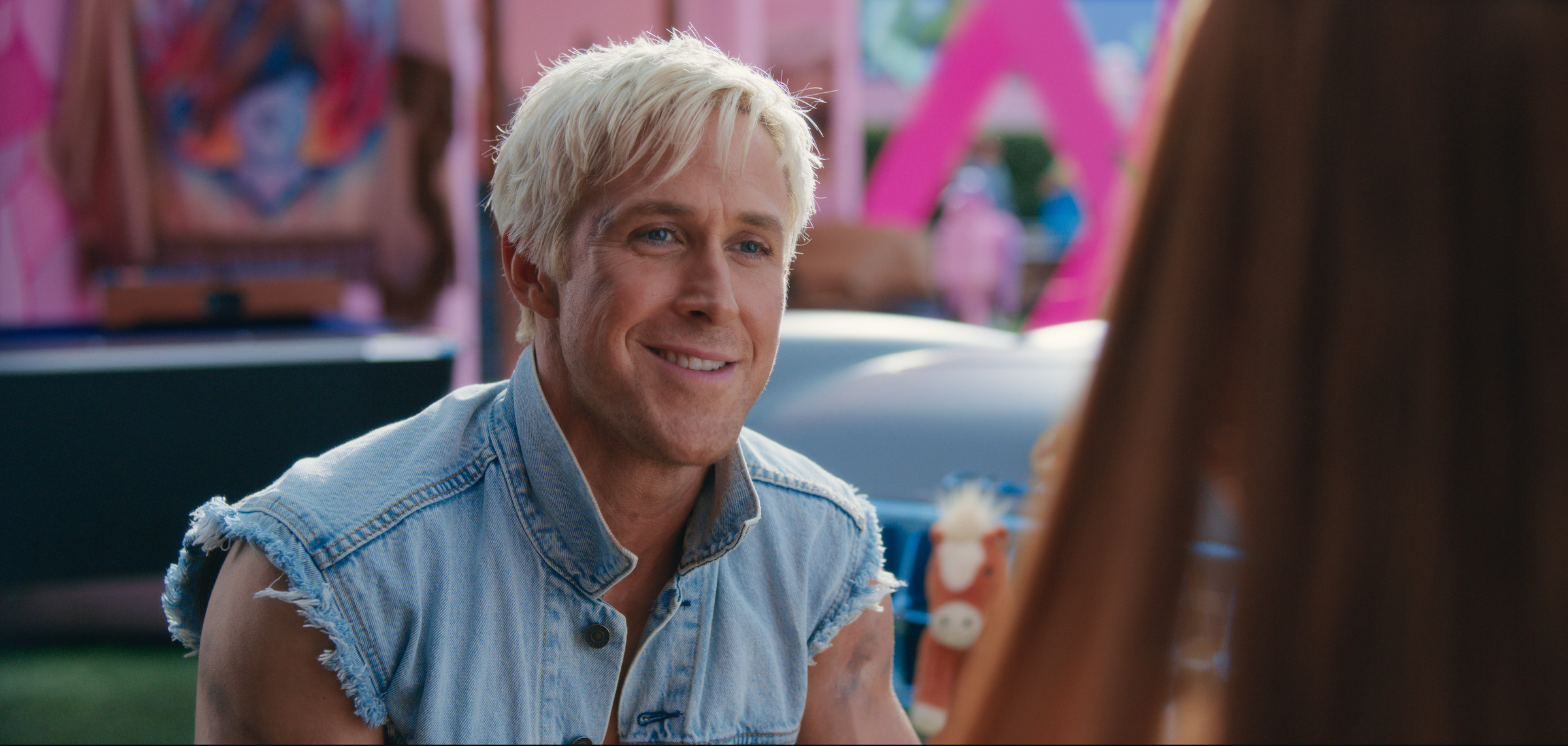This story contains spoilers for Barbie
Who knew that “He’s just Ken” was more than a marketing joke? The Barbie movie centers, of course, on its titular character played by Margot Robbie. But Ken (Ryan Gosling) plays an important role in the drama as he wrangles with the notion that he’s long been an accessory in Barbie’s dream life more than an equal partner. I’ll say the quiet part out loud: Even though this is a movie that leans heavily into a feminine aesthetic and is, as writer-director Greta Gerwig told me during an interview for TIME’s Barbie cover story, a film at its core for mothers and daughters, Ken has the most intriguing and funniest part to play, offering a searing social commentary on modern man’s insecurities dressed up in bubble-gum pink.
Read More: Our Cover Story on Barbie
More from TIME
Perhaps we shouldn’t have expected less from the mind behind Lady Bird and Little Women. Gerwig transforms a joke about the forgettable male doll into a meditation on the state of masculinity at a moment when so many young men, feeling disempowered, have found misguided solace in the patriarchy. It’s a B-plot that’s so compelling it often outshines the somewhat dated girl-power mantras of Barbie’s A-plot.
Ken’s awakening
From the start of the film, Ken smarts at Barbie’s small rejections. He seethes when she talks to other Kens, particularly the one played by Simu Liu, whom he sees as a rival. He doesn’t have a real job or home or purpose outside of Barbie. Then Ken leaves Barbieland, a feminist utopia, and enters the real world, where men run, well, everything. In short, Ken discovers the patriarchy and decides to bring it back to Barbieland, establishing his own “Kendom.”
In a clever bit of screenwriting, Ken cares more about the sartorial manifestations of the patriarchy than the patriarchy itself. He is, after all, a fashion doll. When he discovers that demolishing feminism involves more than donning Sylvester Stallone-inspired fur coats, riding horses, and redecorating Barbie’s Dreamhouse into what he dubs his Mojo Dojo Casa House, he loses interest. He’s easily distracted by acting out war games with the other Kens, allowing the Barbies take back Barbieland from the boys.
By the end of the movie, Barbie and Ken have to have a serious conversation about their relationship. Barbie makes it clear she’s not interested in Ken romantically and urges him to find his own personal passions. The finale not only flips the normal script on female-centric films—in which a woman discovers she doesn’t need a man to find her inner power (Legally Blonde, Eat Pray Love, etc.)—but offers a commentary on how men ought to reassess their own desires outside of their need to both control and depend on women.
Read More: How Greta Gerwig Got Barbie—From the Clothes to the Dream House—Just Right
A story that will resonate with men

During interviews for the cover story on Barbie in this magazine, producer David Heyman suggested that men of all ages would find resonance with Ken’s journey. “I think Ryan is undeniable and so affecting in the film. People really care for Ken even when he’s misguided,” he says. “I think a lot of boys and men will find there’s a lot to relate to in Ken as they try to find their place in the world. But it’s all done with such a light touch and such generosity, and Ryan is just, I think, extraordinary.”
Gosling does, indeed, pull off what could have bene a tricky character. If Ken weren’t so ridiculous, he’d be threatening. Ken isn’t an incel exactly. Short for “involuntary celibate,” incel is a term that certain men use for themselves to describe a state where they feel rejected by women, and resentful toward them as a result. These men spend a lot of time on internet forums bashing feminists and longing for the days when women didn’t work, men controlled women’s bodies, and men’s mere earning power could all but “guarantee” them a sexual partner or wife. These online misogynist groups are a breeding ground for toxic language that has also spilled over into real-world violence.
Ken is more mild-mannered than that. He doesn’t have the, um, parts down there to even really understand what sex is. When he tries to kiss Barbie goodnight, she stares at him blankly. When he asks to stay over, she asks innocently what they would do. He charmingly replies that he doesn’t know. But the implication is certainly that Ken would really prefer if he had more of Barbie’s attention: He can never stay over because Barbie tells him “every night is girls’ night,” and while the Barbies live in the dream houses, the Kens don’t seem to have their own homes. (Maybe they live on the beach and that’s why Ken’s job is, nonsensically, “Beach.”)
Read More: We’re Ignoring the Real Reason Barbie Might Dominate the Box Office
When Ken enters the real world, people suddenly call him “sir” and ask for his advice or help. While men on Venice Beach ogle Barbie, they treat Ken with a certain degree of respect. Ken is enthralled by this newfound power. Unfortunately, he learns that he can’t just walk his way into a job as a banker or doctor. He complains to one man in a business suit that his company must not be “doing patriarchy right” if a man without any qualifications can’t get a job. The businessman assures him that they are doing patriarchy correctly, they just need to hide it better than they used to. So Ken eventually decides that if he cannot participate in the patriarchy in the real world, he’ll bring the philosophy back to Barbieland, transforming it into the Kendom.
When Ken quickly falls under the sway of the patriarchy and returns to Barbieland to preach its gospel, one can’t help but think of certain male rights activists recruiting impressionable young followers.
Male fragility onscreen, beyond Ken

Gerwig isn’t the first director to wrestle with this problem in recent years. Watching Barbie, I couldn’t help but think of last year’s Olivia Wilde movie Don’t Worry Darling. These films seemingly have nothing to do with one another. One’s a musical romp, the other a sci-fi inspired psychodrama.
But the third-act twist of Don’t Worry Darling—major spoilers ahead for this fraught film—is that Florence Pugh’s character isn’t actually living in a 1950s suburban utopia. She’s trapped in a simulation by her partner (Harry Styles). Feeling emasculated by his wife’s taxing job as a doctor and his own unemployment, Styles’ character listens to a men’s rights podcast and falls under the influence of its host, played by Chris Pine. Wilde says Pine’s character was inspired by Jordan Peterson, whom she describes as a “hero to the incel community.” The hypnotic podcast host convinces Styles that both he and Pugh would be happier living in a fantasy throwback to an era where the men worked and the women played housewife. Pugh eventually figures out the trick and comes into violent confrontation with her captor.
Read More: Breaking Down the End of Don’t Worry Darling
Other shows and films have explored similar territory: The excellent 2017 Black Mirror episode USS Callister reveals over the course of its runtime that a talented but oft-mocked coder (Jesse Plemons) has stolen the DNA of the people in his life he resents (mostly women of color) and forced them into a simulation where he plays the captain of a Star Trek-like ship.
Emerald Fennell (who makes a cameo in Barbie) explored the simmering violence lurking beneath the surface of self-styled “nice guys” in her 2020 thriller Promising Young Woman, even casting actors who cultivated those reputations in other projects like Adam Brody (The O.C.) and Max Greenfield (New Girl) to drive home the point to the audience.
All of these films draw at least some inspiration from the original Stepford Wives book (and its various film and television adaptations). The satirical feminist horror story chronicles a husband’s conspiracy to subjugate his working wife after they move to a community filled with strangely robotic women who live to serve their spouses.
Read More: Promising Young Woman, I May Destroy You, and Normal People Reckon With #MeToo in Radical New Ways
The fantasy of finding equilibrium

Ryan Gosling’s portrayal of Ken in Barbie is lighter and funnier than these more serious takes on the resentful man who works to repress the women around him. Heyman is right that we empathize with Ken when he’s ignored by Barbie and root for him to find his meaning.
But at its root, his energy—or “kenergy”—is not dissimilar from the men in these other stories. His feelings of emasculation manifest in shows of aggressive behavior, albeit satirical ones. Like Styles in Don’t Worry Darling, he seems not just resentful but without a purpose in a world where women pursue their passions. Both movies are deeply interested in the idea that modern men feel uncomfortable ceding power to women and what it means for their identities.
Read More: Every Single Barbie Partnership That We Could Find
What, in the end, are women to do about this male fragility? Barbie offers a complicated and not entirely satisfying answer. The Barbies eventually overthrow the Kendom and reach a detente with the Kens. They will give the Kens as much power in Barbieland as women have in the real world. Just a few judgeships, not half of them. And cabinet positions, but not the presidency.
It’s not exactly equality, but it’s a compromise. Whether such an equilibrium can or should be reached in the real world the film doesn’t try to answer. Nor is it necessarily the responsibility of a fun musical romp to do so. In the end, Ken, specifically, learns that he’s “Kenough” without Barbie, a resolution that plays better as a pun than an edict for the modern man.
More Must-Reads from TIME
- Inside Elon Musk’s War on Washington
- Meet the 2025 Women of the Year
- The Harsh Truth About Disability Inclusion
- Why Do More Young Adults Have Cancer?
- Colman Domingo Leads With Radical Love
- How to Get Better at Doing Things Alone
- Cecily Strong on Goober the Clown
- Column: The Rise of America’s Broligarchy
Write to Eliana Dockterman at eliana.dockterman@time.com
